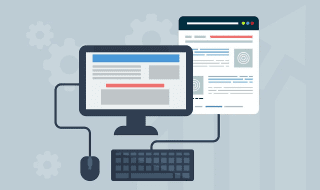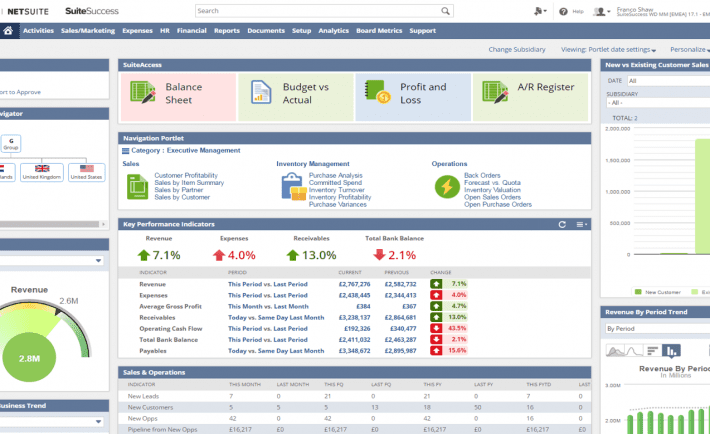
The field of Enterprise Resource Planning (ERP) software is growing each day. Perhaps the most frequent question among many enterprise resource managers is what are the primary business benefits of an ERP system?
With an ERP system, business processes are standardized, streamlined, and integrated across all departments in an enterprise, including human resource, finance, procurement, marketing, distribution, and other.
How do ERP Systems Work?
ERP Systems have a simple mode of operation that contributes to the outcome of your business. Every enterprise manages human resources, purchases and sells products or services, and accounts for expenditures and profits. Instead of using different applications for each of these business processes, enterprises can use an integrated software platform that helps handle all these business activities from a unified hub – this is where an ERP integration service finds its spot.
ERPs made their debut in the manufacturing industry, but they have since been customized to accommodate service industries, hospitality, government, education, healthcare, and financial sectors, among others. ERP systems are designed to meet the specific needs of each of these industries. For instance, the systems employed by the government feature Contract Lifecycle Management instead of the standard purchasing features. Systems used by banks are designed to accommodate the reconciliation of credit and debit cards and checks, among others.
Top ERP systems for enterprises include:
1. Microsoft Dynamics 365
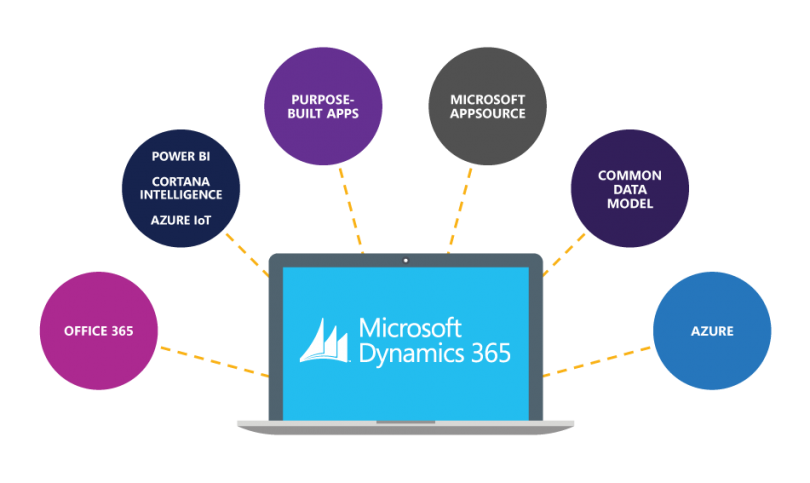
The Microsoft Dynamics Platform made its debut in 2001 when Microsoft acquired Great Plains and Soloman. In 2002, the acquisition of Navision and Axapta extended the platform but made its ecosystem rather chaotic.
Microsoft Dynamics 365 is a comprehensive cloud ERP system. While this platform does not offer the maturity and features you’d get from systems such as NetSuite, it allows great flexibility and scalability. Even better, this ERP solution is easy to integrate into third party systems your enterprise might already be using.
Although the system integrates perfectly with other systems, its ecosystem is highly fragmented and not carefully managed. It may not be ideal if you are looking for a centralized shared system for a large organization.
2. Salesforce
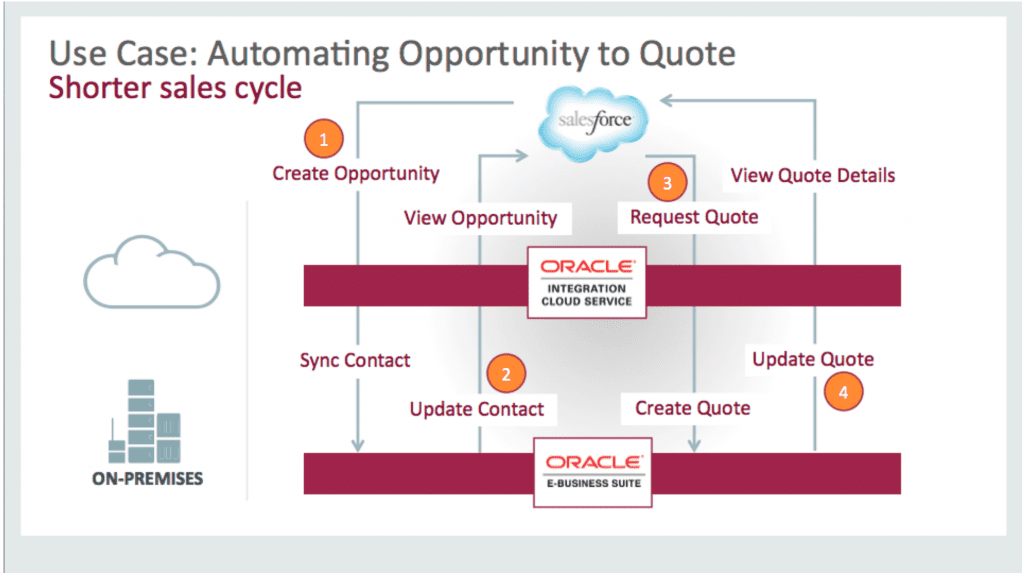
Salesforce initially established itself as the top customer relationship management (CRM) system. With the popularity of ERPs, Salesforce integrated Financial Force and a number of other third party applications that allowed it to operate outside its basic CRM functionality.
Salesforce functions as an ERP system, given that it was natively built in the cloud. While most other ERP systems struggle to transfer their old components to the cloud, Salesforce is instead upgrading its native cloud solutions for ERP. The system utilizes its flexibility and ease of integration to dominate the ERP industry.
3. Workday
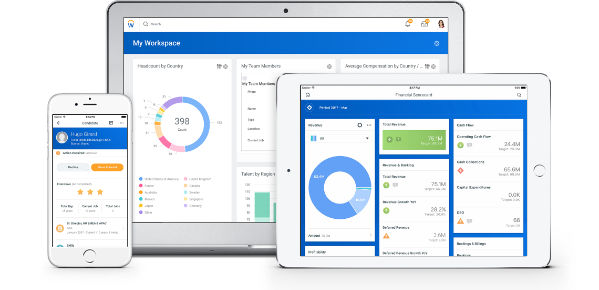
Workday, just like Salesforce, was natively built on the cloud. The system has transformed from a simple human capital management (HCM) system to a comprehensive ERP solution. Workday offers human resource functionality, as well as accounting, financial, and many more ERP functions.
In recent years, Workday has shown significant improvement and strengthened its position on the market. While it was initially designed for small enterprises, it has found its place on the upper market, and even some large organizations are adopting it. It is highly flexible, integrates with third party applications with ease, and it keeps expanding.
4. NetSuite
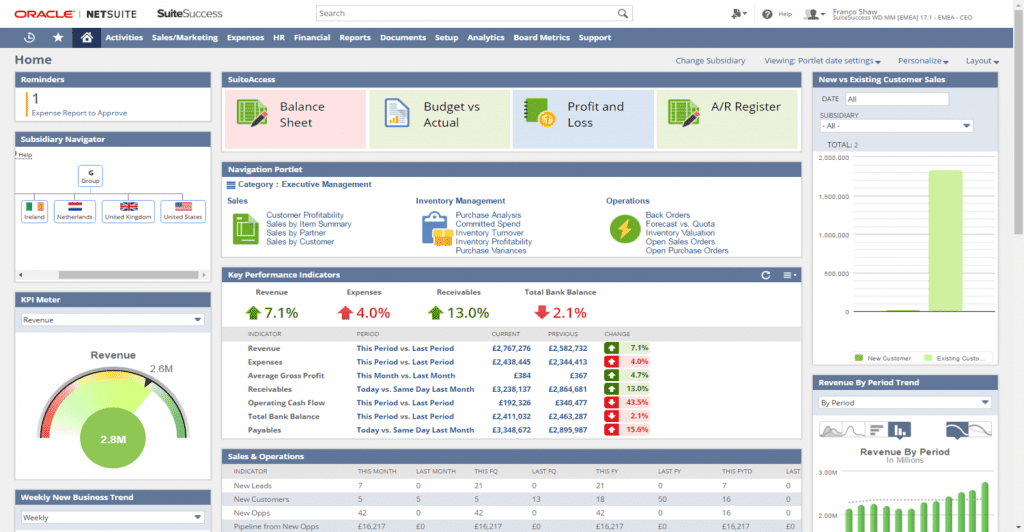
NetSuite is among the most sophisticated cloud ERP systems. It is also very comprehensive, unlike Salesforce and Workday, accommodating financials, inventory management, light manufacturing, CRM, and HCM, among others.
When NetSuite debuted, it was a perfect solution for small and mid-size businesses. While that is still the case, large organizations are now adopting the system thanks to its wide range of advanced functions. The system is constantly improving to offer better functionality in manufacturing, project management, and forecasting among other industries.
5. SAP S/4HANA
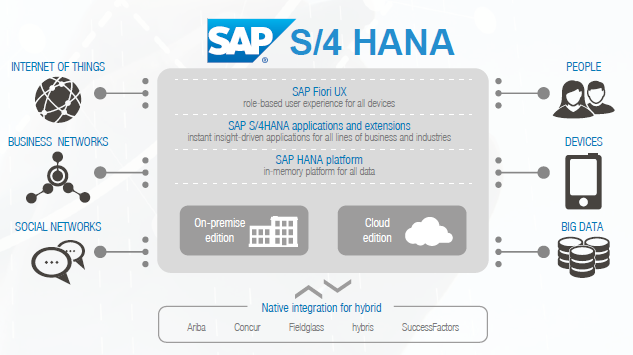
SAP S/4HANA is a system designed to handle the needs of Fortune 1000 companies – and it has a significant market share among these companies. Even though the ERP system is not as mature as NetSuite, it stands as the most popular option for large organizations looking to standardize and scale their business.
It is preferred for its real-time analytics, artificial intelligence, and machine learning. However, the system feels like an overkill for small and mid-size businesses.
6. Deltek

Deltek has several ERP products to accommodate the needs of clients from different industries. These products include Maconomy, Ajera, Vision, Costpoint, and Deltek for Professional Services. For flexibility, Deltek offers on-premise and cloud-based systems with some products priced per-employee per-month.
More than 20,000 organizations are using Deltek to run their operations. Your enterprise can use the system to manage resources, enhance service delivery, and grow business profitability. It accommodates businesses of all sizes. If you are planning to start new projects and control different companies dealing with different currencies, Deltek might be the right option for you.
7. Oracle
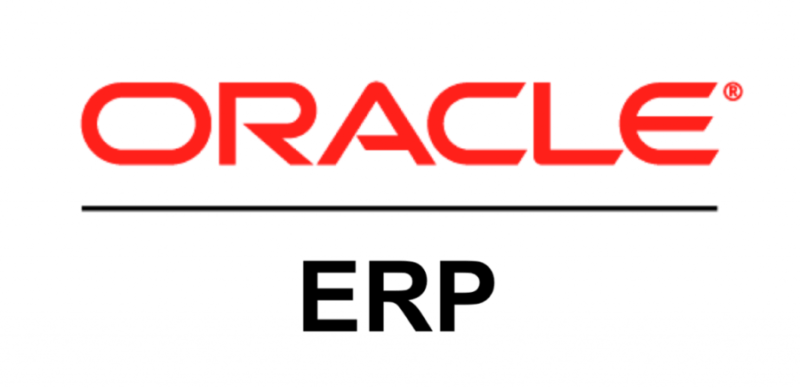
Oracle offers solutions for all businesses, from small startups to Fortune 1000 companies. The company, which owns NetSuite and a horde of other business solution products, offers cross-industry capabilities, including CRM, ERP, and supply chain planning, among others. The E-Business Suite provided by Oracle is designed to help enterprises manage the complexities of running a business on a global scale. With Oracle ERP, you can unify data and connect your resources and also get real-time insights to ensure the best financial decisions are made.
ERP For All Businesses
ERP systems were not designed for large-scale and high-profile businesses only; they are perfect solutions for all businesses big and small. Any company that needs to transform and streamline its operations digitally should consider ERP systems. When well integrated and implemented, ERP systems will enhance internal efficiency within your enterprise, better financial decision making, and increase business agility and security. When all business operations are managed from a single point, it becomes easier to point out shortcomings in one department and address them before other departments are affected. With so many ERP systems today, take your time and pick one that meets your enterprise needs best.


